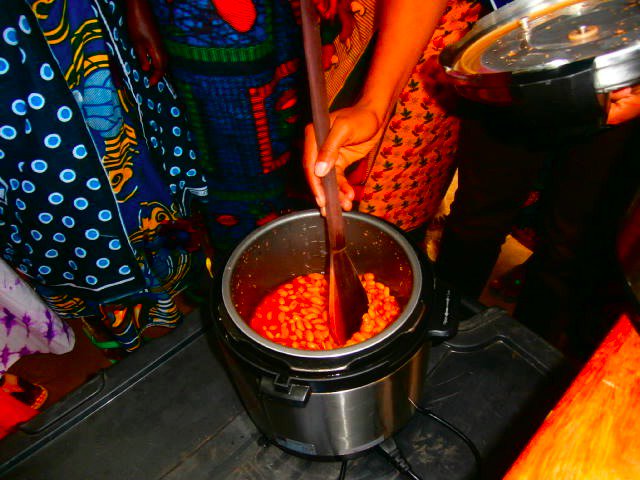- Date
- 13th May 2020
- Categories

In our first piece of the new Leave No-One Behind (LNOB) blog series (introduction to the series here), Dr Amita Bhakta writes about how to ensure that people with disabilities are included and empowered through all activities of the MECS programme.
By Dr Amita Bhakta, Freelance Consultant.
The Sustainable Development Goals strive to ‘leave no-one behind’ and providing clean energy and cooking for all is a core part of this agenda. Scaling up clean cooking means that we need to ask ourselves: who are the cooks, and how can we ensure we fully include them in our efforts to fulfil this agenda? Over the past few months, I have been looking at how the MECS programme can approach the needs of people with disabilities, and the different aspects to consider for cooks with different impairments.
To understand why disability matters, we need to look at the bigger picture. With a globally ageing population and with increasing numbers of people having a disability, it is important to ensure that every ‘body’ with different impairments can cook. Physical barriers, such as difficulties in using a kitchen, economic barriers due to a lack of job security, and social barriers, such as needing support from others to cook but not always receiving this, means that people with disabilities experience food insecurity. Ensuring that people with disabilities have good nutrition requires us to recognise them as people who need to cook. This can mean that kitchens, and appliances such as electric pressure cookers need to be adapted, to make sure that even if you cannot see, hear, stand up, or hold cutlery with ease, you can still cook food and eat well. Lower counter tops, easy to use knobs and switches on cookers and space for wheelchair users are among the many possibilities to bring cooks with disabilities into the heart of the kitchen. Being able to understand recipes represented through pictures for step-by-step tasks is an added bonus.

But, even if we provide cookers which are easy to use, can people with disabilities power them with reliable access to energy? At present, we do not know very much about how people with disabilities manage their access to and use of energy services, and we still need to do more exploring on the global relationship between energy and disability, especially in low and middle income countries where MECS’ focus lies. However, what we do know, is that energy is vital for people with disabilities to power their assistive devices. such as electric wheelchairs or hearing aids. We also know that clean energy is important for people with disabilities who cannot leave their homes due to their needs for high levels of care, or the cultural stigmas they face outside. Households with people with disabilities in low and middle-income countries are less likely to have access to electricity and more likely to rely on biomass. People confined to their homes are more exposed to pollutants from biomass cooking fuels, making modern and clean energy cooking services all the more important for them. There are also things we don’t know. How do people with specific impairments access certain types of energy? How do they carry fuel, are some fuel types easier to use than others for cooking? Disabled people can access fuel through subsidies, but how do they access energy through less formal routes? MECS can turn these gaps into opportunities for deeper exploration around disability.
So, I guess the fundamental question is: how can MECS get cooks with disabilities cooking with clean energy? Talk to them! Involve disabled women and men and ask them about their individual needs. Leaving no-one behind means that the voices of people with disabilities need to be heard, to ensure that clean cooking for all includes every body.